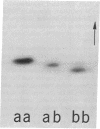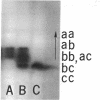Abstract
All individuals of the diploid plant Clarkia franciscana, an annual species native to California, have duplicated genes for the dimeric enzyme alcohol dehydrogenase. Since each gene specifies a polypeptide with a distinct charge, the species has a fixed heterozygous phenotype consisting of three isozyme variants. The enzyme is coded by a single gene in closely related species. Clarkia franciscana is highly self-pollinated and monomorphic at all but one of its loci that have been examined. Consequently, the duplication provides enzyme variability in the absence of genetic variability.
Keywords: plant evolution, isozyme polymorphisms, electrophoresis
Full text
PDF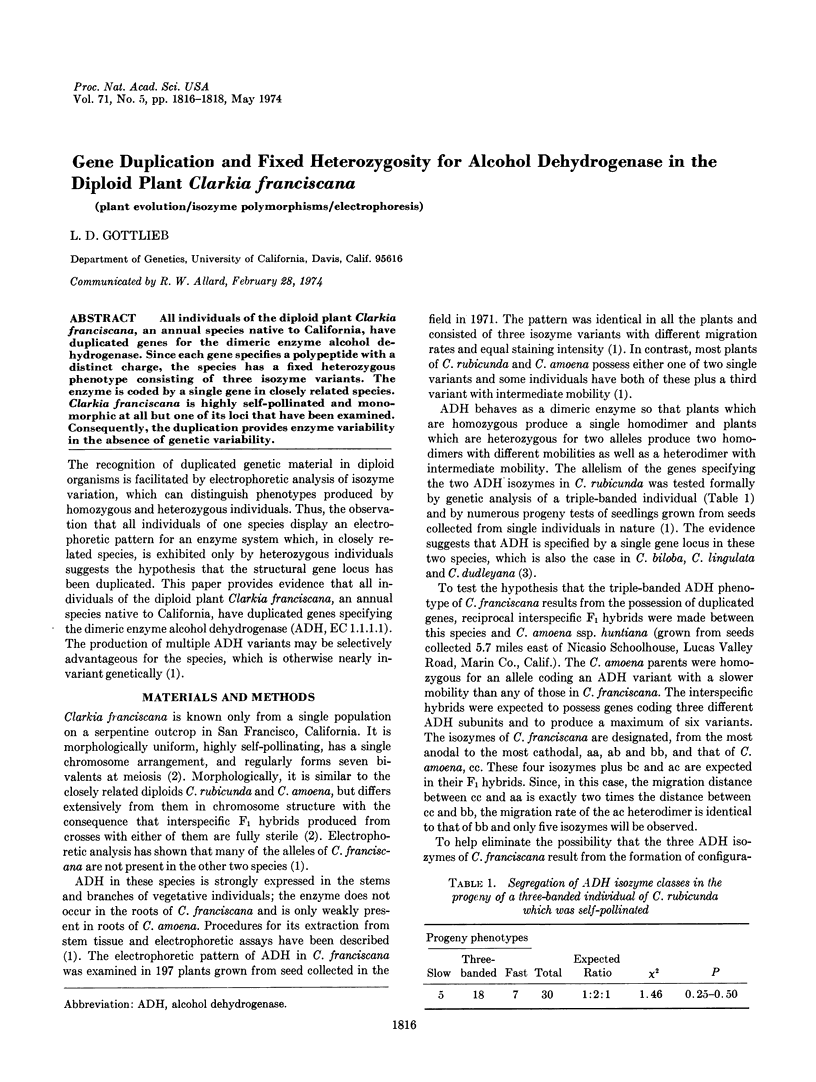
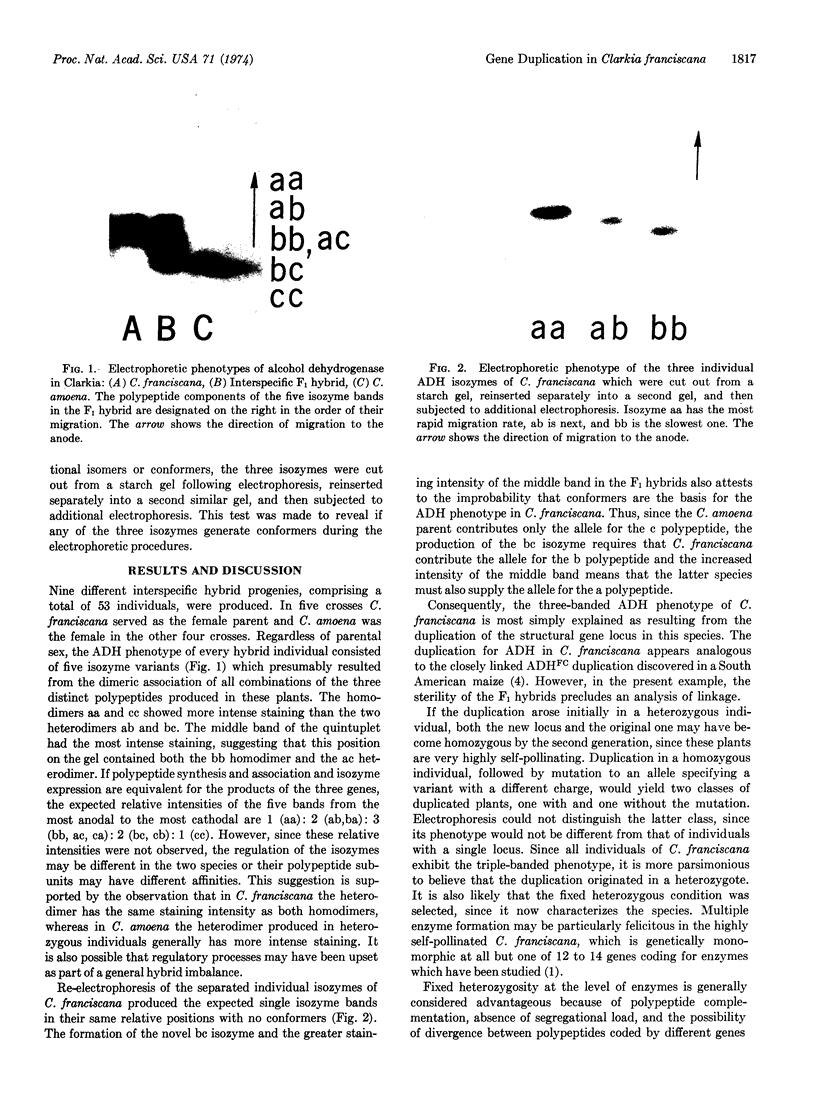
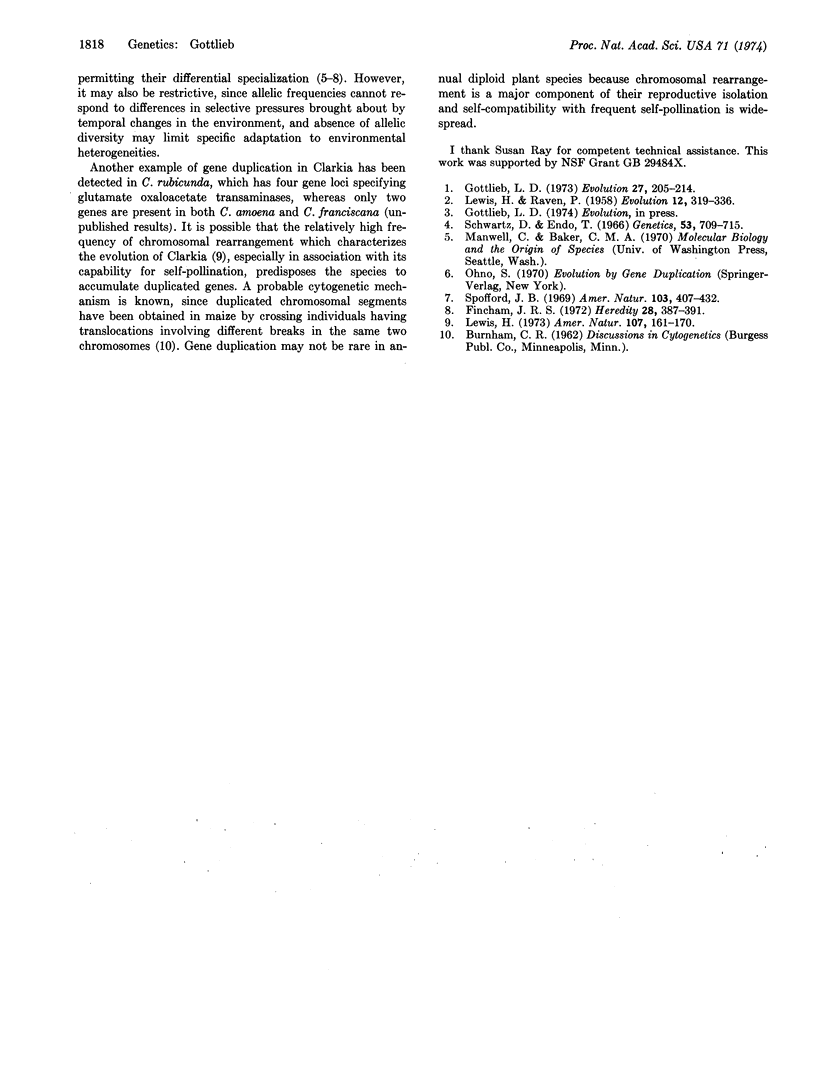
Images in this article
Selected References
These references are in PubMed. This may not be the complete list of references from this article.
- Fincham J. R. Heterozygous advantage as a likely general basis for enzyme polymorphisms. Heredity (Edinb) 1972 Jun;28(3):387–391. doi: 10.1038/hdy.1972.49. [DOI] [PubMed] [Google Scholar]
- Schwartz D., Endo T. Alcohol Dehydrogenase Polymorphism in Maize-simple and Compound Loci. Genetics. 1966 Apr;53(4):709–715. doi: 10.1093/genetics/53.4.709. [DOI] [PMC free article] [PubMed] [Google Scholar]




